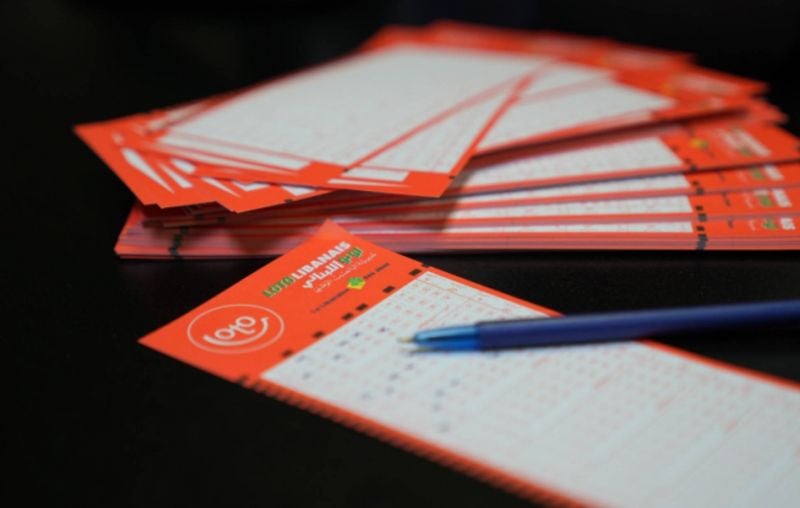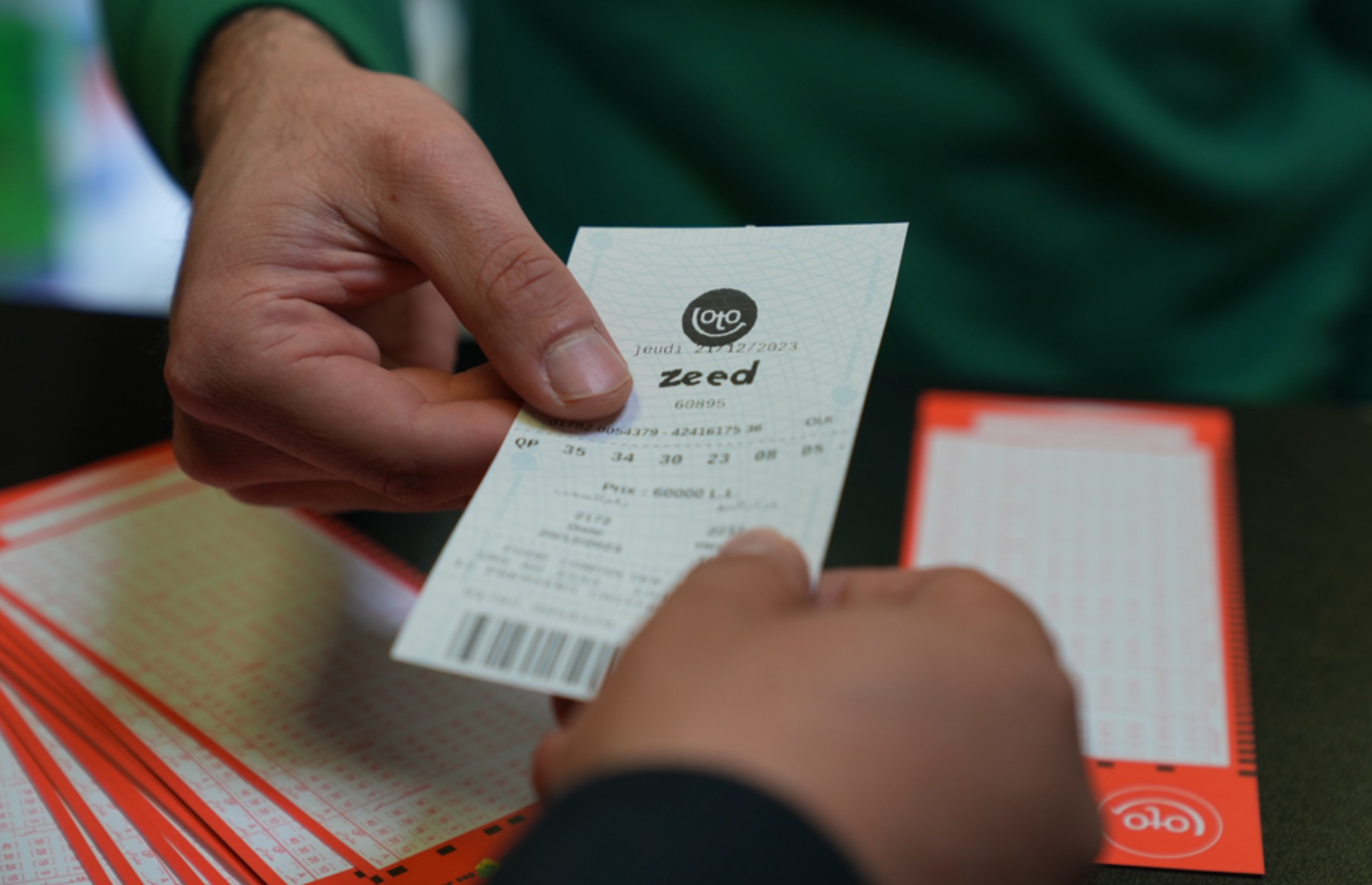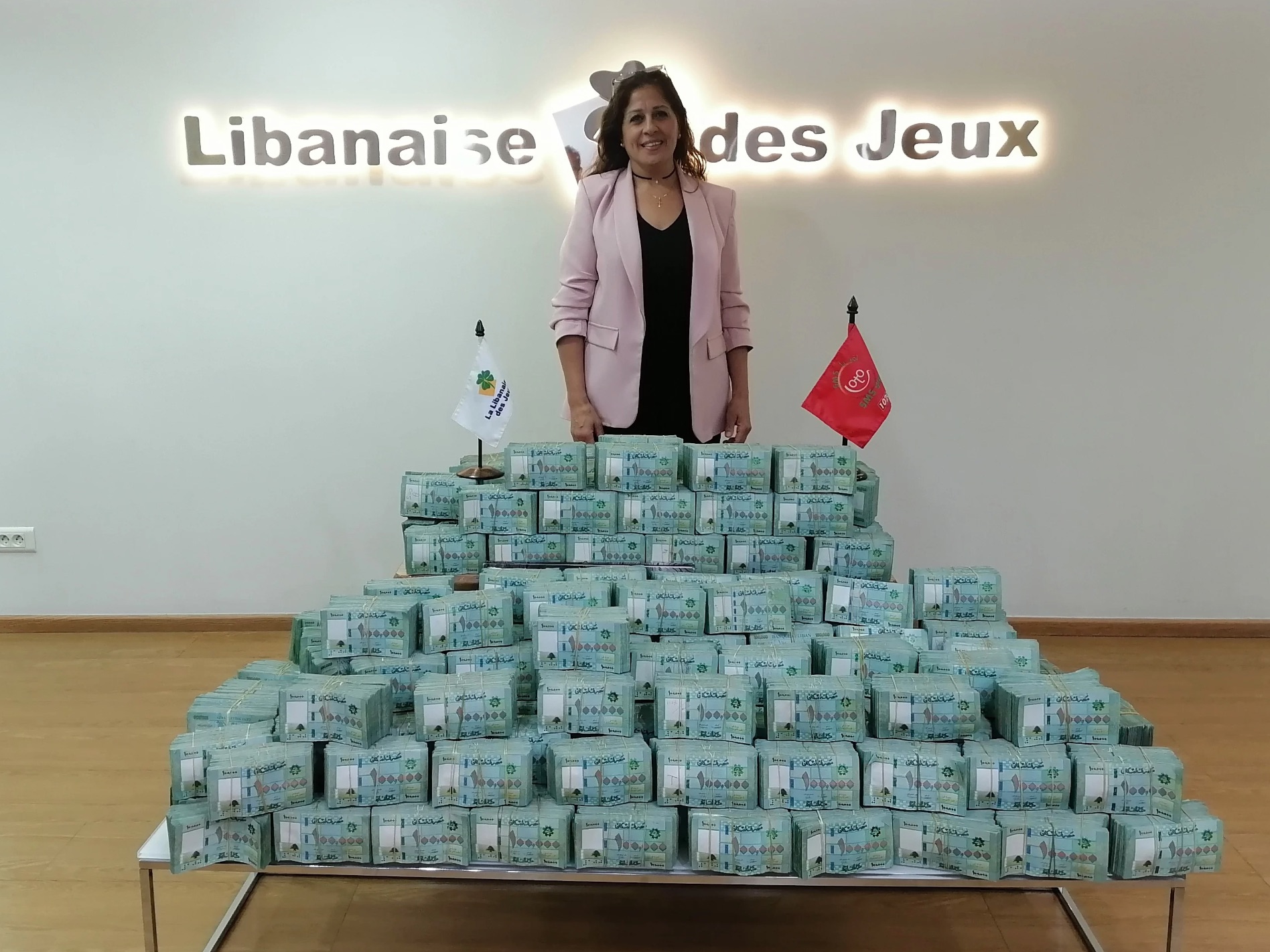
On Dec.18 2023, the jackpot was worth 50 billion Lebanese lira . (Credit: Mohammad Yassine/L'Orient-Le Jour)
“If you don’t win it [the lottery] on Monday, you will on Thursday.” This has been the slogan of the La Libanaise des Jeux (LLDJ), which has fascinated the Lebanese for 10 years.
However, irony struck on a Monday, Dec. 18, 2023, when two fortunate winners claimed the largest jackpot ever in Lebanon, surpassing LL50 billion.
While the sum is substantial, its true value has steadily dwindled in crisis-stricken Lebanon since 2019. Once boasting jackpots in the multimillion-dollar range, with a pinnacle exceeding $5 million, the current value now hovers just above $500,000 at best.
“Even with the decline in the jackpot, playing the lottery continues to serve as a form of escapism,” said Tamer Bou Raffoul, a customer in his 70s at a lottery retailer in Baabda who plays Loto two or three times a month on average. “It provides a glimmer of hope in a country grappling with a scarcity of optimism and an almost complete standstill in various aspects of life.”
While winning the Lotto has often meant a life-changing experience, involving quitting jobs or indulging in luxury, the question looms four years into the economic collapse: Is hitting six — or seven — numbers still the stuff of dreams?
The dream continues
“Of course I’m still dreaming about it,” said Rony, as he bought his tickets at one of Lebanon’s 1,300 ticket outlets. He used to play eight tickets for each draw, but now he only takes four.
“I can’t afford to take as many as I used to,” he explained, adding that he previously won small prizes on several occasions. “I can’t afford to take as many as I used to.”
 Wanting to completely rely on fate, some players prefer to let the machine choose their numbers. (Credit: Mohammad Yassine/L'Orient-Le Jour)
Wanting to completely rely on fate, some players prefer to let the machine choose their numbers. (Credit: Mohammad Yassine/L'Orient-Le Jour)
At the store, run by a woman named Nicole, a notebook with winning numbers sits on the counter. People come in and out throughout the day. Some just drop by while others, like Rony, let the machine pick their numbers. But for some, the numbers they choose mean something personal, like birthdays, favorites, or important dates.
“This can lead to some amazing situations,” Nicole said. “We have a player who’s been playing 8 grids systematically at each draw for 8 years! Another person has stuck with the same numbers twice a week for 26 years.”
“Despite the depreciating purchasing power, the appetite for Lotto is still strong,” Nicole added.
Higher prices, higher prizes
Data from LLDJ, the private company handling the lottery in Lebanon since 2002, succeeding Société libanaise d’exportation et d’investissement (SOLEI) since 1986, confirmed this trend.
Despite the crisis, the company has maintained grid sales just below the 10-year average in terms of volume. From 2010 to 2019, an average of nearly 664,000 tickets were sold per draw. Even between 2020 and 2022, despite a sales dip in 2020 (an average of around 492,000 tickets sold per draw, 34.3 percent less than in 2019), the level remained at almost 633,000.
LLDJ achieved these results through an adaptation mechanism implemented in response to the crisis from 2020 onward.
Under the terms of its contract, which was renewed in 2016 for a decade, LLDJ designates 45 percent of its revenue to winners’ prizes. The remaining share is distributed among the State (41.5 percent), sales outlets (5 percent), and the company itself (8.5 percent).
When it started, LLDJ used to give winners cheques.
But when the economic crisis hit in 2019, people couldn’t easily get money from banks or cash their cheques. By the end of 2020, the company changed and started handing winners cash.
This switch caused a big increase in the number of tickets sold per draw: sales increased by 107.2 percent in 2021, after a drop of 34.3 percent in 2020.
Now, winners are photographed with a pile of Lebanese Lira notes, delivered in huge boxes.
 Rima Bawaridi, winner of more than 30 billion pounds. (Rights reserved)
Rima Bawaridi, winner of more than 30 billion pounds. (Rights reserved)
After resolving the payment issue in mid-2021, LLDJ faced a new and persistent challenge. This was the need to adjust the value of its significant prizes, measured in lira, due to the currency’s depreciation. The significant challenge surrounding the lira rate resulted in the National Lottery (Yanassib), LLDJ’s sole competitor, ceasing operations by the end of March 2023.
Yanassib couldn’t adapt its prices or prizes to attract a sufficient number of customers.
In April 2021, for the first time since 2010, the company raised the price of its grid from LL2,000 (supposedly $1.33) to LL3,000 (just $0.25). Subsequently, there were three more increases, to LL8,000 (April 2022), LL20,000 (February 2023), and LL50,000 (July 2023), never reaching the pre-crisis dollar value (currently $0.55).
“This has significantly reduced our real sales, once adjusted for inflation and the depreciation of the lira,” said Georges Gharib, Managing Director of LLDJ.
“The challenge is to strike the right balance between raising grid prices to boost jackpot sizes and the adverse effect on sales,” he said.
“Each time we raise prices to enhance jackpots, our sales take a hit, dropping by nearly 30 percent on average,” Gharib said. “It then takes several months for sales to adjust, and they don’t always reach pre-increase levels.”
This rings especially true for the 2023 financial year. Despite initially showing promising sales, equivalent to pre-crisis levels, the two consecutive grid price hikes significantly impacted these results.
Until mid-December, 2023 recorded just over 445,000 average sales per draw, almost two-thirds of the average sales over the last three years. The sluggish adjustment is becoming more evident: since July, average sales have barely reached 333,000 tickets per draw, half the previous average.
“An extraordinary jackpot, following multiple unsuccessful draws like the LL50 billion one, contributes to alleviating the situation somewhat,” said Gharib.
He noted that 550,000 tickets were sold during the winning draw, which is a 66 percent increase compared to the average recorded since the price hike.
A persisting crisis
Although winning the lottery remains a dream for many Lebanese, the crisis has left its mark. The days of fantasizing about abandoning everything for a life of leisure are gone.
“Players’ plans have become more realistic than before the crisis,” Gharib said. “They hope to win the jackpot to open a shop for a steady income or to assist their children.”
Had Bou Raffoul won the jackpot before 2019, he would have “invested part of the amount in property, another in gold, and deposited a third in the bank to collect interest.”
“Today, everything has changed. If I win, I’ll use the money to start a business that will benefit my children,” he added.
Meanwhile, Rony, who pictures himself winning the next jackpot, has a straightforward plan.
“First, I’ll call my money changer to convert the money into dollars and arrange for it to be picked up from the LLDJ offices,” he said. “After that, I’ll change the money into gold – it’s easier to store and transport. But I don’t want to invest more in this country or put the money in the bank.”
This article was originally published in French in L'Orient-Le Jour. Translation by Sahar Ghoussoub.